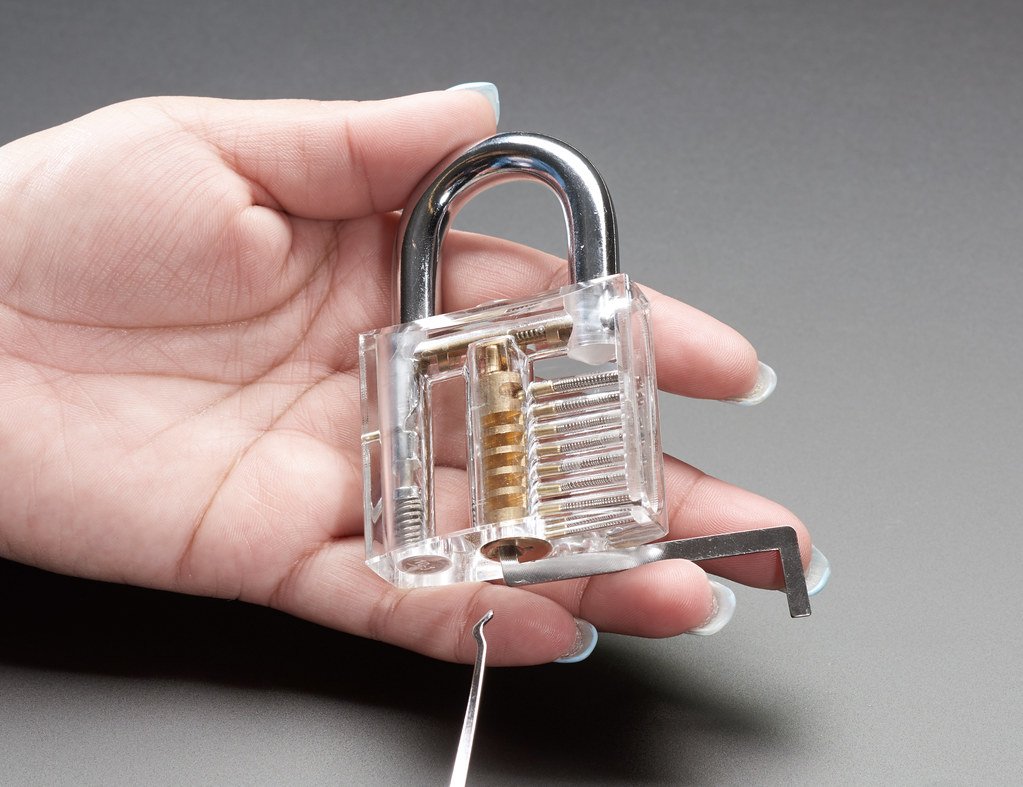Locksport, the art of picking locks as a recreational hobby, has long entertained and captivated enthusiasts of all ages. From skilled locksmiths to curious individuals attempting to unravel the secrets of security, the allure of locksport has extended its reach beyond the realms of adult pastimes. In recent years, an intriguing trend has emerged: an increasing number of children, armed with their miniature lock-picking tools, have taken up the challenge of picking locks. As psychologists delve into this fascinating phenomenon, they seek to understand the underlying motivations and potential benefits of locksport for kids. In this captivating exploration, we delve into a psychologist’s perspective on the intriguing world of locksport for children, unlocking not only physical mechanisms but also the minds of these young enthusiasts.
Table of Contents
- Unlocking the Benefits: Exploring the Psychological Advantages of Locksport for Kids
- Nurturing Cognitive Skills: How Locksport Enhances Problem-Solving Abilities in Children
- Building Resilience and Patience: The Role of Locksport in Fostering Emotional Development
- Empowering Ethical Behavior: Teaching Integrity and Responsibility through Locksport
- Unlocking the Fun: Engaging Activities and Recommendations for Locksport Enthusiast Kids
- Q&A
- In Summary

Unlocking the Benefits: Exploring the Psychological Advantages of Locksport for Kids
Engaging in locksport provides children with more than just a fun and intriguing hobby. The psychological advantages it offers can significantly impact their development and well-being. Here are some of the key benefits that make locksport an invaluable activity for kids:
- Enhanced Problem-Solving Skills: Locksport challenges children to think critically and strategically. As they navigate the intricate mechanisms of different locks, they develop problem-solving skills that can be applied to various real-life situations. This cognitive stimulation strengthens their analytical thinking abilities, fostering a resilience and adaptability necessary for success in many areas of life.
- Boosted Patience and Determination: Mastering locksport requires patience and perseverance. Children learn to persist in the face of challenges, training their minds to remain focused and determined even when faced with complex puzzles. These qualities translate into other aspects of their lives, allowing them to tackle difficulties with confidence and resilience.
- Improved Fine Motor Skills: Manipulating different lock mechanisms involves precise hand movements and dexterity. Through locksport, children refine their fine motor skills, enhancing their coordination and control. Such increased manual proficiency can have a positive impact on their handwriting, drawing, and other activities that require precise hand-eye coordination.
- Enhanced Confidence and Self-Esteem: Successfully picking a lock provides a sense of accomplishment and boosts a child’s confidence. As they tackle progressively challenging locks, their self-esteem grows, and they develop a greater belief in their own abilities. This increased confidence can positively influence their social interactions and willingness to explore new opportunities.
In conclusion, locksport offers a wealth of psychological advantages for children. By engaging in this captivating activity, kids can develop problem-solving skills, patience, fine motor skills, and confidence that will benefit them throughout their lives.

Nurturing Cognitive Skills: How Locksport Enhances Problem-Solving Abilities in Children
Unlocking the potential of their problem-solving abilities, Locksport has emerged as a stimulating and distinctive activity for children to develop their cognitive skills in a captivating way. This engaging pursuit not only hones their analytical thinking but also fosters a sense of determination and persistence.
In the realm of Locksport, children encounter a multitude of intricately designed locks, presenting them with a diverse set of challenges. As they embark on this thrilling journey, their problem-solving abilities are put to the test as they strive to decipher and unlock these puzzles. By continually striving to conquer new locks, children learn to think critically, analyze patterns, and formulate innovative strategies to tackle increasingly complex obstacles.
Moreover, Locksport encourages children to develop patience and persistence. As children grapple with the intricate mechanisms of locks, they are compelled to concentrate, strategize, and persist in their efforts until they achieve success. Through these encounters, children cultivate resilience, learn from their mistakes, and exhibit a tenacity that proves invaluable beyond the realm of Locksport.

Building Resilience and Patience: The Role of Locksport in Fostering Emotional Development
In today’s fast-paced world, where instant gratification reigns supreme, the need for building resilience and patience is more crucial than ever. One unconventional activity that has emerged as an unexpected champion in fostering emotional development is lockpicking, also known as locksport.
Through the intricate process of manipulating locks, locksport enthusiasts are forced to navigate a labyrinth of challenges that demand a remarkable level of resilience and patience. As they painstakingly maneuver the tiny pins inside a lock, they learn to embrace setbacks and setbacks, mastering the art of perseverance.
Listed below are key reasons why locksport plays an integral role in developing emotional fortitude:
- Enhanced problem-solving skills: The nature of locksport requires individuals to analyze and decipher complex lock mechanisms, training their minds to think critically and creatively. This cognitive process not only enhances problem-solving skills but also teaches participants that frustrations are simply stepping stones towards successful solutions.
- Improved focus and patience: Engaging in locksport demands a high level of concentration and an abundance of patience. With each pick, practitioners develop the ability to sustain focus for extended periods and appreciate the value of patience when faced with obstacles. These acquired qualities inevitably transfer to other areas of life, encouraging a calm and composed mindset in the face of adversity.
- Resilience in the face of failures: Locksport is an arena where failures are common, and success is hard-earned. Each unsuccessful attempt serves as a valuable lesson, teaching individuals to embrace failure as an opportunity for growth rather than a reason for defeat. This resilience not only fosters emotional strength but also encourages a growth mindset, allowing individuals to bounce back stronger from setbacks.
The journey into the world of locksport is more than just a hobby; it’s a gateway to building emotional resilience and patience. By honing their problem-solving skills, fostering patience and focus, and developing resilience in the face of failure, locksport enthusiasts cultivate vital emotional qualities that can be applied to areas beyond the lockpicking realm.
Empowering Ethical Behavior: Teaching Integrity and Responsibility through Locksport
Locksport is not just a hobby; it is a powerful tool for instilling ethical behavior and teaching the values of integrity and responsibility. Through the practice of locksport, individuals learn the importance of moral conduct, trustworthiness, and the consequences of their actions.
One way locksport empowers ethical behavior is by emphasizing the importance of honesty. In this community, participants must respect the unwritten code of conduct that promotes ethical behavior. Locksport practitioners understand that tampering with someone else’s property without permission is not only unethical but also illegal. This understanding fosters a sense of integrity and responsibility as individuals strive to uphold the highest ethical standards in their practice.
Furthermore, locksport provides a platform for individuals to learn the consequences of their actions. Participants quickly realize that manipulating and picking locks requires skill and precision. This experience teaches them the significance of responsible decision-making and how their actions can have far-reaching impacts. By fostering this understanding, locksport encourages individuals to think critically about the ethical implications of their choices, both inside and outside the hobby, promoting a sense of accountability and responsibility.
- Locksport teaches individuals the importance of respecting boundaries and personal privacy.
- Participants gain a deep understanding of the significance of trust and the value it holds in personal and professional relationships.
- It promotes a culture of open dialogue and honesty, creating a community that values ethical conduct.
- Locksport practitioners are encouraged to share their knowledge responsibly, ensuring it is used for positive and educational purposes only.
- Through ethical locksport practice, individuals develop a strong sense of personal integrity and responsibility.
- Locksport reinforces the notion that ethical behavior goes beyond mere compliance with laws but involves making morally sound choices.
Unlocking the Fun: Engaging Activities and Recommendations for Locksport Enthusiast Kids
Are you a parent or guardian of an adventurous child who has a keen interest in lockpicking and the intricacies of locks? Look no further, as we have curated a list of engaging activities and recommendations specially designed for locksport enthusiast kids!
1. Lockpicking Kits: Introduce your little one to the world of locksport by gifting them a lockpicking kit. These kits come with various types of locks and tools that will allow your child to explore the art of picking locks in a safe and controlled environment. *Note: Adult supervision is recommended at all times.*
2. Puzzle Lock Challenges: Challenge your mini locksport enthusiast with a series of puzzle locks. These locks often require critical thinking and problem-solving skills to unlock. From maze locks to combination locks, your child will have a blast while enhancing their mental dexterity and patience.
3. Locksmith Field Trips: Arrange a visit to a local locksmith shop or invite a locksmith to give a hands-on demonstration. Your child will have the opportunity to learn about the different types of locks, their mechanisms, and even witness a real locksmith in action. This experiential learning opportunity will undoubtedly ignite their curiosity and passion for locksport.
4. Online Locksport Communities: Encourage your child to join online locksport communities where they can connect with fellow enthusiasts, share their experiences, and learn from experienced lockpickers across the globe. This virtual network will provide a platform for your little one to showcase their knowledge, seek guidance, and make valuable connections.
Unleash your child’s curiosity and foster their love for locksport with these engaging activities and recommendations. While they develop their skills, always prioritize safety and ensure that they understand the ethical boundaries associated with locksport. Let the unlocking adventures begin!
Q&A
What is locksport?
Locksport is a recreational activity that involves the picking or bypassing of locks in order to gain access to a locked object. It often involves the use of tools and techniques to manipulate locks without causing damage.
Why would children be interested in locksport?
Locksport provides children with a hands-on, problem-solving experience that can foster their curiosity, critical thinking skills, and creativity. It can also serve as an avenue for them to develop patience and persistence in a controlled and safe environment.
Is locksport safe for kids?
Locksport can be safe for kids as long as appropriate safety measures are taken, such as adult supervision and the use of practice locks rather than real ones. It is crucial to ensure that children understand the importance of using their skills responsibly and ethically.
Can locksport benefit a child’s cognitive development?
Yes, locksport can benefit a child’s cognitive development by improving their problem-solving skills, hand-eye coordination, and spatial awareness. It also encourages the development of patience and perseverance, as picking locks requires concentration and precision.
Does locksport promote unlawful activities in children?
Locksport, when practiced within legal boundaries and with proper guidance, does not encourage unlawful activities in children. It is important to emphasize the ethical and responsible use of their skills, fostering an understanding of the potential consequences of misuse.
Are there any potential psychological risks involved in locksport for kids?
While locksport itself does not pose significant psychological risks, it is essential to monitor a child’s interest and involvement in the activity. Extreme fascination with locks or an unhealthy behavior change might warrant further investigation or consultation with a psychologist.
What are the potential benefits of locksport for kids?
Locksport offers numerous benefits for kids, including improved problem-solving abilities, increased patience and persistence, enhanced spatial reasoning skills, and an outlet for their natural curiosity. It can also foster a sense of achievement and confidence in their abilities.
Can locksport help children in real-life situations?
Yes, locksport can provide children with practical skills that might be useful in real-life situations, such as accidentally locking themselves out or encountering a locked object. Understanding how locks work can empower them to handle such situations more effectively and calmly.
How can parents support their child’s interest in locksport?
Parents can support their child’s interest in locksport by providing appropriate tools and equipment, offering guidance and supervision during practice, and encouraging ethical and responsible use of their skills. It is also important to foster open communication and monitor their well-being throughout their involvement in the activity.
Is locksport only suitable for certain age groups?
Locksport can be suitable for a wide range of age groups, but it is recommended to introduce it to children who have developed the necessary fine motor skills and understand the concept of responsibility. Parental guidance and age-appropriate tools are crucial in ensuring a safe and positive locksport experience for kids.
In Summary
As we come to the end of this fascinating exploration into the world of locksport for kids, it becomes increasingly evident that this unconventional hobby holds immense potential beyond the realm of mere pastime. Through the lens of a psychologist, we have delved into the myriad of cognitive and emotional benefits that this seemingly niche activity has to offer.
Locksport, with its intricate puzzles and complex challenges, provides a unique avenue for children to tap into their natural problem-solving abilities. It encourages the development of critical thinking, attention to detail, and patience – skills that are crucial for success in all facets of life. Moreover, the sheer satisfaction derived from successfully picking a lock boosts self-esteem and encourages a growth mindset, propelling children to embrace challenges with gusto.
But what about the concerns around ethics and the potential for misuse? Our journey through the psychologist’s perspective has shed light on this aspect as well. By introducing locksport to children in a controlled and supervised environment, we can foster important discussions about ethics, personal responsibility, and respect for boundaries. These conversations empower young enthusiasts to understand and navigate the fine line between curiosity and trespassing, ensuring that they become responsible lockpickers and stewards of security.
Beyond the psychological benefits, locksport for kids also serves as a powerful platform for cultivating a sense of community. As young lockpickers gather at lockpicking events, share tips and tricks, or participate in friendly competitions, they forge bonds, exchange ideas, and learn invaluable social skills. Not only do these interactions facilitate teamwork and sportsmanship, but they also foster creativity and innovation, as children explore different approaches and problem-solving strategies together.
While some may view locksport as an unusual passion for children to pursue, this psychologist’s take reminds us that our understanding of education and enrichment should not be limited by conventional norms. With the right guidance and support, locksport can be a gateway to unlocking hidden potential and igniting a lifelong love for exploration and discovery.
In conclusion, this psychologist’s analysis of locksport for kids serves as a testament to the multifaceted benefits this captivating hobby holds. From enhancing cognitive skills and promoting ethical awareness to fostering social connections and stimulating creativity, locksport has proven itself to be more than meets the eye. So, let us encourage our young ones to embrace this unconventional pursuit, unlocking not only the secrets of locks but also their own true potential.
As an affiliate, my content may feature links to products I personally use and recommend. By taking action, like subscribing or making a purchase, you’ll be supporting my work and fueling my taco cravings at the same time. Win-win, right?
Want to read more? Check out our Affiliate Disclosure page.